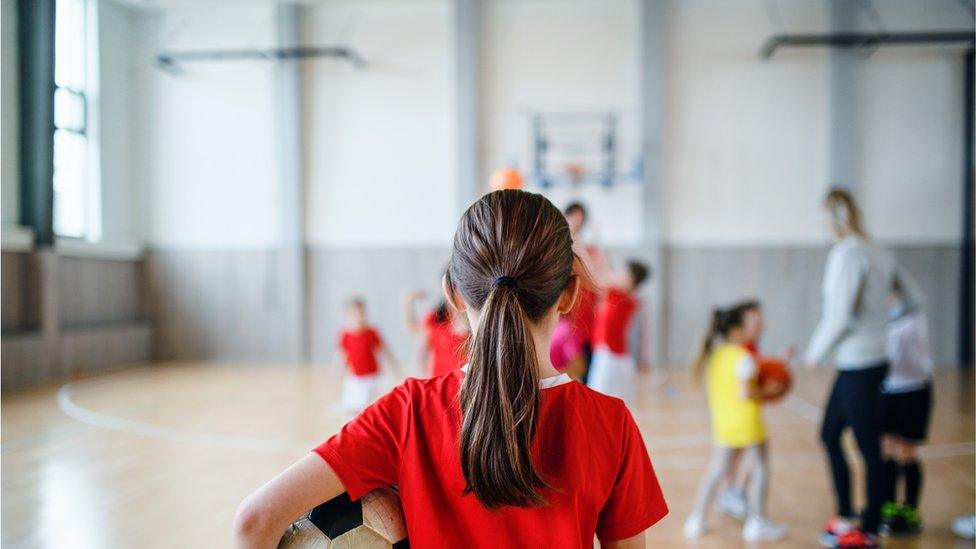More exercise could help poorer pupils, study says.
- Published

Children who do more physical activity are likely to have stronger self-control which can help their education, research by Cambridge University shows.
The positive impact is particularly strong among disadvantaged children.
Giving every child the opportunity to take part in activities like swimming and football, could help close the achievement gap between wealthy and poorer pupils, it suggests.
Data from more than 4,000 children in England was used in the study.
The authors suggest there may be a real temptation to encourage schools to spend extra hours in the classroom, to stop children falling behind after the disruption caused by Covid.
But Dr Michelle Ellefson, reader in cognitive science at the Faculty of Education at Cambridge University, said: "This study is saying 'think again', because playtime and PE lessons benefit the mind in ways that children really need in order to do their best.
"Even giving children less-structured opportunities to run around outside could be of real developmental importance," she added.
The study is the first long-term analysis of the links between physical activity, self-regulation and academic achievement of children.
It looked at data from children in England at three stages during childhood and adolescence - at ages seven, 11 and 14.
And it also used information on physical activity from the Millennium Cohort Study, which is following the lives of around 19,000 young people born between 2000 and 2002 in the UK.
It found that overall, children who do more physical activity, had better control of their emotions - meaning fewer mood swings or emotional outbursts.
Physical activities which promote self-control, such as swimming or ball sports, also have positive, knock-on effects on children's education, the study claims.
The impact of physical activity was particularly strong among disadvantaged children, the research indicates.
This may partly be due to the fact that children from poorer backgrounds often have fewer opportunities to take part in organised recreation and sports, and therefore experience stronger benefits when they do so.
The impact of physical activity also varies with age - at seven, the researchers found the emotional control helps with academic progress and by age 11, it was the impact on behaviour that led to any academic benefits.
Disadvantage gap
Previous research from Sport England has found only about two in five children (42%) from low-income homes do the recommended 60 minutes exercise a day, compared with 54% for children from better-off homes.
And a report by the Social Mobility Commission has suggested that 34% of poorer children participate in sport less than once a week, compared with only 13% of their better-off classmates.
The Cambridge University report suggests that schools could build links with sports clubs to create targeted programmes for children experiencing early disadvantage.
It says activities which influence emotional control, such as games that involve co-operation, could be particularly important during early childhood.
Fotini Vasilopoulos, who led the study at Cambridge's Faculty of Education, commented that while research examining the links between physical activity and attainment has produced mixed findings, there is a positive, indirect relationship, because of the impact on mental processes like self-control.
"This may be particularly important for children from families who find it harder to access sports clubs or other forms of physical activity outside school.
"The attainment gap is a really complex problem, but we know that some of it is linked to less-advantaged children having poor self-regulation skills early in childhood.
"Physical activities that help them to do things like focus on a task or maintain attention could be part of the way to bridge that gap."